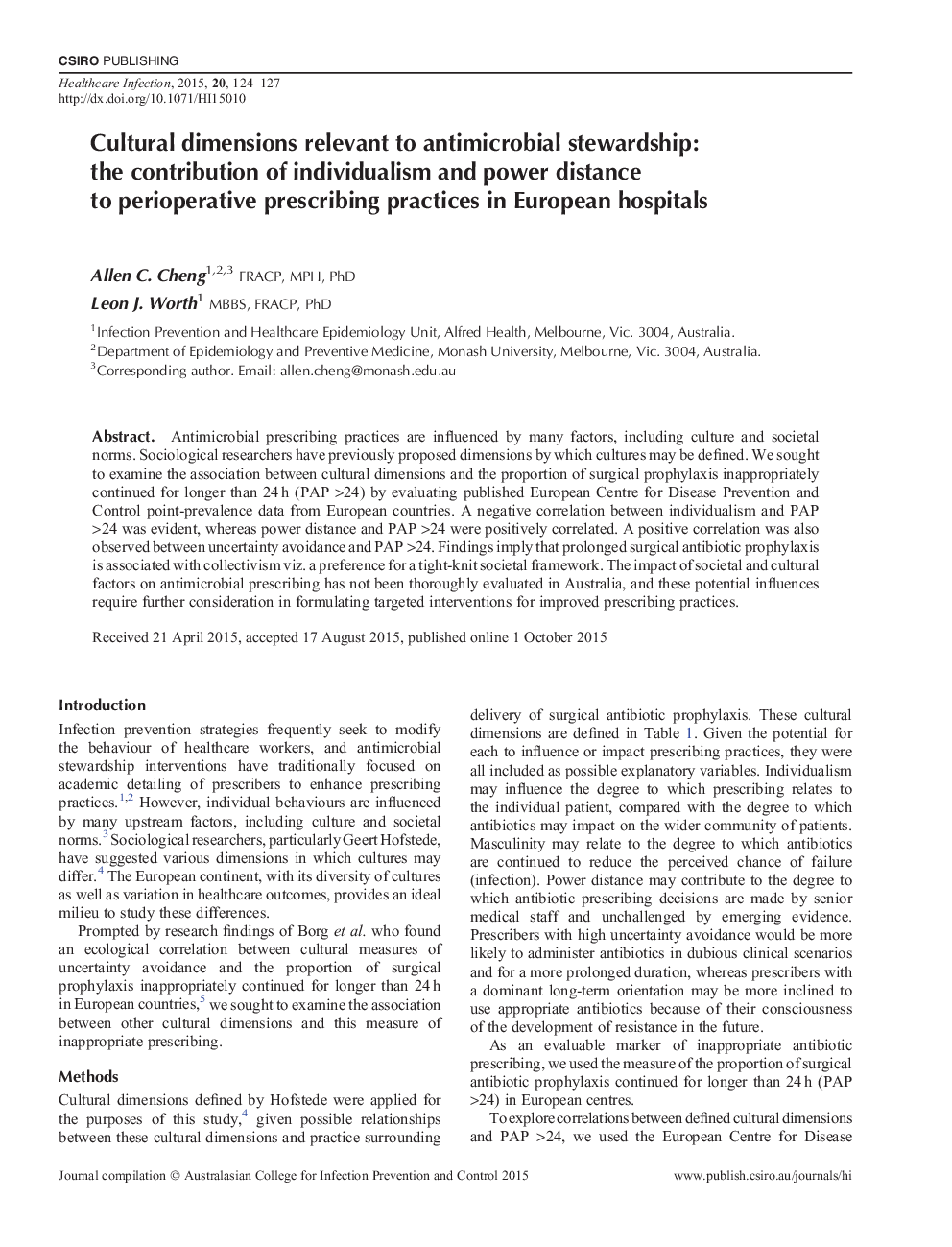| Article ID | Journal | Published Year | Pages | File Type |
|---|---|---|---|---|
| 2679525 | Healthcare infection | 2015 | 4 Pages |
Antimicrobial prescribing practices are influenced by many factors, including culture and societal norms. Sociological researchers have previously proposed dimensions by which cultures may be defined. We sought to examine the association between cultural dimensions and the proportion of surgical prophylaxis inappropriately continued for longer than 24 h (PAP >24) by evaluating published European Centre for Disease Prevention and Control point-prevalence data from European countries. A negative correlation between individualism and PAP >24 was evident, whereas power distance and PAP >24 were positively correlated. A positive correlation was also observed between uncertainty avoidance and PAP >24. Findings imply that prolonged surgical antibiotic prophylaxis is associated with collectivism viz. a preference for a tight-knit societal framework. The impact of societal and cultural factors on antimicrobial prescribing has not been thoroughly evaluated in Australia, and these potential influences require further consideration in formulating targeted interventions for improved prescribing practices.
